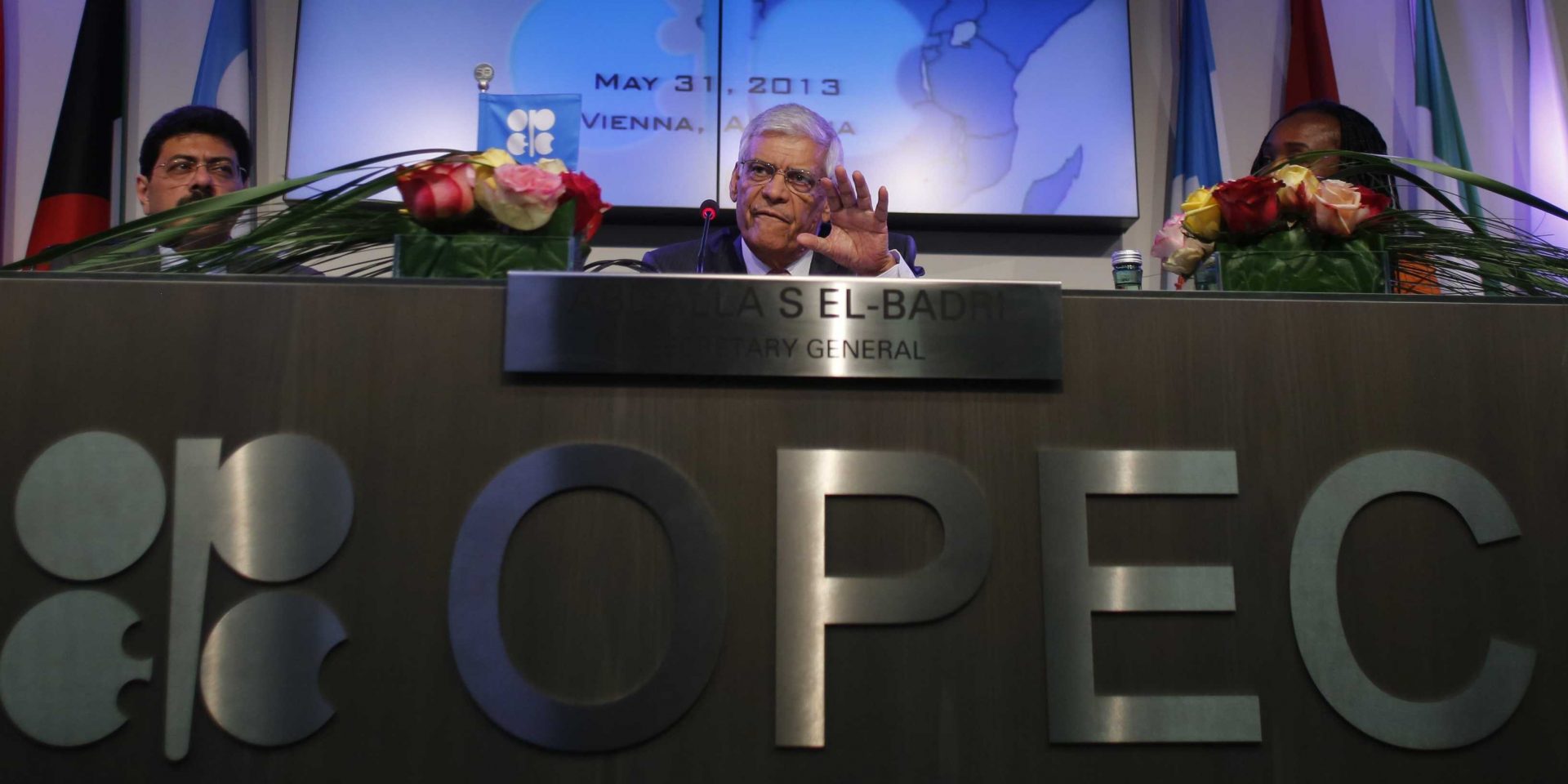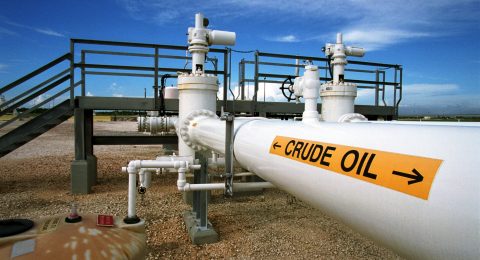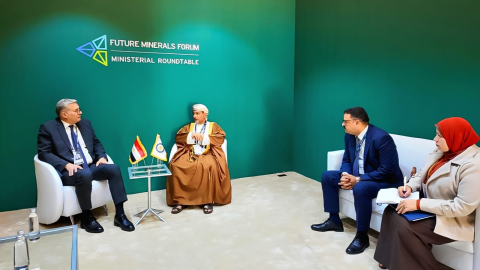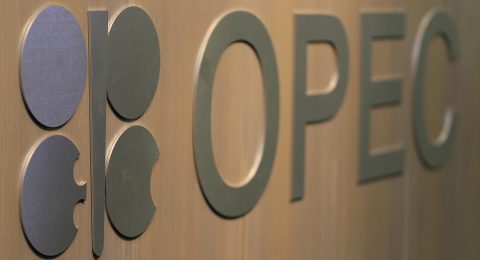OPEC is making a mistake by seeking to preserve its share of global crude sales amid a global production glut instead of trimming output to prop up prices, Oman’s oil minister said.
“I think they are wrong, those who are sticking to market share and cutting their income by half,” Mohammed Al-Rumhy said at a news conference in the capital Muscat Monday. “I’d rather reduce my production by five, 10% and increase my revenue by 100%, to double it.”
Al-Rumhy’s remarks about the Organization of Petroleum Exporting Countries follow similar comments by Samir Kamal, the group’s representative from Libya, who said April 9 that OPEC should curb output to accommodate any possible lifting of oil sanctions on Iran. Oman on the Arabian Peninsula is the largest regional oil producer that’s not an OPEC member.
Brent crude, a global benchmark, has fallen 47% in the last 12 months amid rising output from North America and Russia. OPEC decided on November 27 to maintain its crude production target to protect market share and is due to meet next on June 5.
The group’s members should meet with non-OPEC producers to discuss cutting output to redress oversupply, Al-Rumhy said. OPEC’s decision not to cut production is a “non-starter” for countries outside the organization, he said.
The next OPEC meeting comes weeks before Iran and six global powers aim to reach an agreement to limit that country’s nuclear program in return for an easing of economic sanctions. A deal by a self-imposed June 30 deadline might pave the way for Iran to boost oil production and sales, exacerbating global oversupply.
Oman and Iran are discussing the route for a planned natural gas pipeline to transport Iranian fuel to Oman, Al-Rumhy said. Once they decide on a route, the countries will discuss the link’s construction and seek to determine a price for the gas, he said.
“We think this gas will see daylight,” he said. “The issue of the pricing of the gas, we agreed that we will leave to the end of the project.”
Oman pumped 943,000 b/d of crude and condensate last year and is targeting 980,000 this year, Salim Al Aufi, undersecretary at the oil and gas ministry, said at the conference.
Source: Bloomberg












